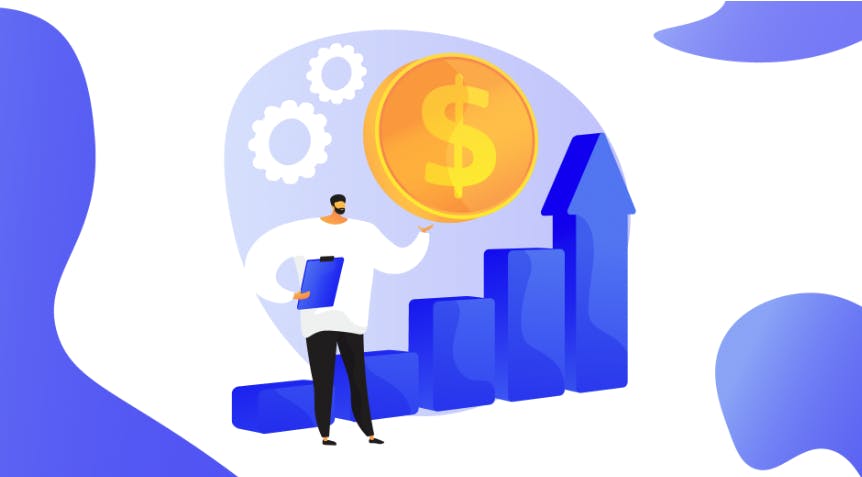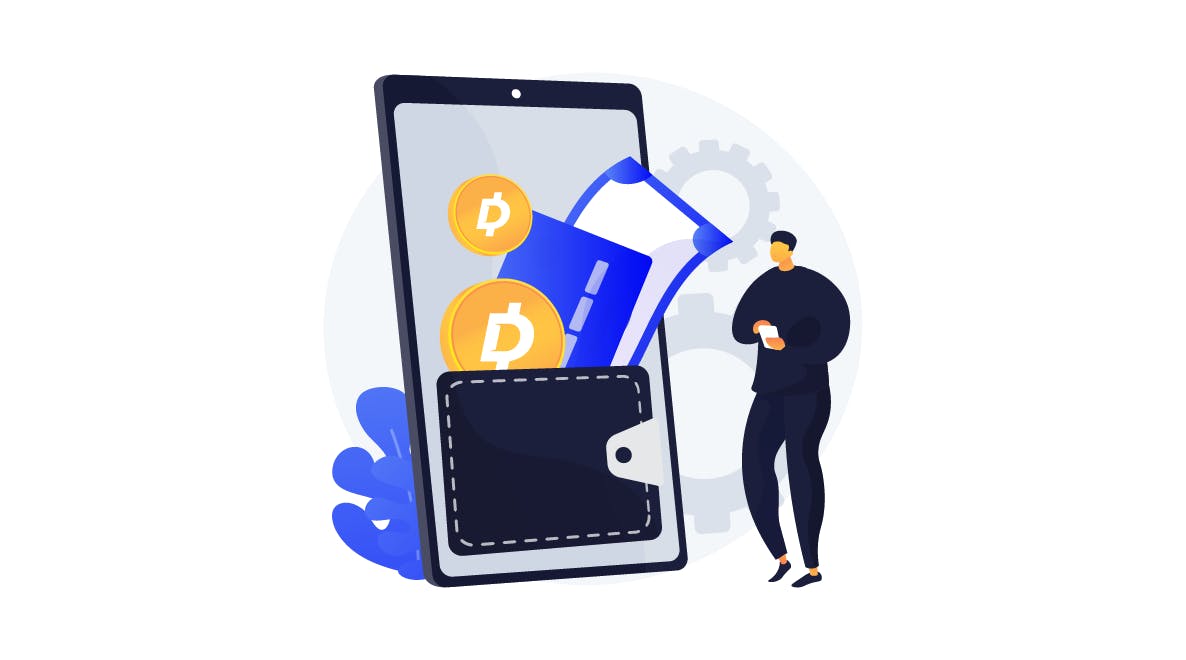Cryptocurrencies have yielded countless technological advancements, with fraud and identity theft prevention being just one — something that abounds when it comes to traditional banks and fiat currencies. Fraud is so prevalent in these sectors, that it’s estimated that businesses lose somewhere in the region of 5% of their total revenue to fraudsters each year, and over 16 million people annually fall victim to identity theft in the United States alone.
However, these problems are almost totally eradicated by blockchain and DAG-chain technologies. With a regular bank account, the bank will hold all your personal and banking information and provides you with a card to spend and withdraw cash.
So what’s the solution here? Fortunately, blockchain, DAG-chain, and other analogues almost eradicate these problems entirely.
If you’re unsure as to how, consider your standard brick-and-mortar bank. The bank holds all your personal and banking data, then provides you with a method of spending your capital. All of this can be compromised through hacking, mail interception etc.
With cryptocurrencies, only you, the user, has access to owned currency and personal information, none of which is disclosed when making a transaction. With external bodies cut out of the equation, the issue of fraud is almost eliminated.
While this is one of the reasons many champion cryptocurrencies, a great amount of trepidation is felt by those who may have fallen prey to some commonly shared misconceptions around them. Let’s dive in.
Where Perception Currently Lies
It is very fair to say that over the last 10 years people have become increasingly aware of cryptocurrencies, especially Bitcoin. However, often for all the wrong reasons. Hardly a day goes by without a news story or criminal conviction regarding the use of cryptocurrencies to buy or sell illegal items on the dark web, such as the story regarding 2 businessmen who were using their own online cryptocurrency exchange business to launder the proceeds of marijuana sold on the dark web.
However, these are not the only negative stories seen by the public. Go back just two years to the euphoria that was being placed around Bitcoin and its ever-increasing price and the huge amounts of money that could be made by investing. Sadly, we all know how this ended. Despite reaching a high of almost $20,000 on the 17th of December 2017, just 5 days later, the price of Bitcoin had fallen to a little over $13,000. This tumbling price generated mass panic and sales of the coin, sending the price tumbling yet further, all the way to $6000 by the start of February – just 5 weeks later. Leading ultimately to many of those new investors losing money, some, their entire life savings.
And in that comes the majority of people’s views about cryptocurrencies in general - their instability. It is this instability that draws in traders - people trying to profit from the fluctuations in the prices of these coins. Large coins like Bitcoin can go up or down many hundreds of dollars each day, and smaller altcoins potentially 100’s of percent.
So, what we have is a mass public who see cryptocurrencies as being used by those trying to avoid the law and by traders to make a fast buck. All leading people a long way from the original intention of these coins, to be…
Money of the Future
We mentioned above the increased security benefits that cryptocurrencies bring for their users, but that is not all. In one of our last posts (Helping you get a Credit History), we wrote how the poorest 2 billion people in the world are unable to open a bank account because the banks simply do not see them as profitable. Cryptocurrencies give anyone with a smartphone the chance to use them. Giving people their first alternative to cash, and a safe place to store, save and spend their money. And, in the process, create a credit history that they can use to borrow if they wish. Providing billions of people with an opportunity to improve their lives without restrictions.
Because banks ultimately seek profits, this also makes them expensive to use. The cost of making a bank transfer can be anywhere from 1-5% along with a separate transaction fee. Cryptocurrency transactions cost anywhere from 0.1-1.5%, with no added fee. This means that people could save almost 5% per transaction. No small chunk of change!
We mentioned earlier how fraud costs businesses 5% of their total revenues, when you add the cost savings of using crypto (another 5%), a business in a loss (perhaps on the verge of bankruptcy or layoffs) could suddenly break even or make a profit. And, for those companies already in profit, could result in better wages for employees and/or cheaper products for us – the end consumers. These reasons for using cryptos are fantastic, and there are a whole host more. To read more about the benefits of using cryptocurrencies click here.
Dagcoin takes this aim of a better form of currency and makes it a reality by removing the current fears held by the public. The volatility in prices caused by trading is removed simply by not making Dagcoin available on any trading platform - making it impossible to trade the coin. In turn, by making all transactions visible on its ledger it is much harder for criminals to hide their illegal activities and profits than any other cryptocurrency.
Conclusion
Cryptocurrencies bring with them many great technological advancements. However, these are all too often lost due to the misconceptions created by the media.
For the general public, their knowledge of cryptocurrencies revolves largely around the instability of prices, the huge gains or losses that could be made by trading or investing, and the convictions of those who are using them illegally to avoid detection when conducting criminal activities.
However, cryptocurrencies:
— Provide a safer and more secure place to store and spend your money than traditional methods, freeing you from the stresses and worry of fraud and theft
— Cut the costs of transfers dramatically, and slice down transfer times from days (at worst) to mere seconds (when it comes to Dagchain currencies).
— Allows those blockaded from building a credit history by banks the opportunity to take control of their financial lives and do just that.
The list goes on, and while we could sit here all day discussing it, one thing is amply clear — cryptocurrencies are the future, and thankfully, they’re here to stay.






